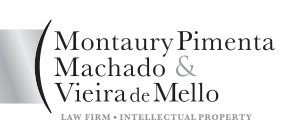On August 27, 2024, the 3rd Chamber of the Brazilian Superior Court of Justice addressed the legal controversy concerning whether YouTube, an internet application provider owned by Google, can remove, suspend, or make user content unavailable when it violates its applicable terms of use. The court also sought to determine if such content moderation aligns with Brazilian law, particularly regarding freedom of expression, censorship prohibition, and the liability of service providers.
The lawsuit was brought by a neurosurgeon following the removal of his video titled "Covid Treatment is Definitive and Performed by a Doctor" where he advocated treatments for Covid-19 that were not endorsed by the World Health Organization (WHO), including hydroxychloroquine. The plaintiff argued that YouTube, after removing his videos for violating its terms of use and platform policies, engaged in shadowbanning against him, altering the algorithm to reduce his video reach, blocking the live video function, canceling subscribers, and threatening to delete his account without providing a clear explanation. As a legal basis for his claim, besides arguing that his constitutional right to freedom of expression had been violated, the plaintiff also cited article 19 of the Brazilian Internet Bill of Rights, which he interpreted as requiring a court order for content removal.
Promulgated on April 23, 2014, the Brazilian Internet Bill of Rights (Law No. 12.965) outlines principles, guarantees, rights and duties for Internet use in Brazil. A key rule established in its legal text is article 19, which sought to restrict the possibilities of holding the internet application provider liable for content generated by its users, as set out in its caput: “Art. 19. In order to ensure freedom of expression and prevent censorship, the Internet application provider may only be held civilly liable for damages arising from content generated by third parties if, after a specific court order, it fails to take steps to make the indicated infringing content unavailable within the scope and technical limits of its service and within the indicated period, subject to legal provisions to the contrary.”
By setting limits on the liability of digital platforms, and in line with the “Manila Principles on Intermediary Liability”1, the aim was to promote a balance between protecting user rights allowing providers the freedom to operate. By clearly defining the conditions under which platforms can be held liable for content generated by third parties, the system provides greater legal certainty for these providers, allowing them to operate without the constant fear of being penalized for actions beyond their control, resulting in an incentive for innovation and the expansion of digital businesses. In addition, these limits aim to ensure that platforms do not adopt excessively restrictive measures, thus preserving users' freedom of expression and avoiding undue censorship.
Nonetheless, the legal guidelines and principles established by the Brazilian Internet Bill of Rights dialogue directly with the terms of use of digital platforms, which function as a contract between the provider and its users. These terms establish the behavioral rules and limits for the use of services by users, often including clauses that allow for the moderation of content that violates the platform's internal policies, such as illegal content, disinformation or abusive practices, functioning as a valid self-regulation tool for internet application providers.
In this context, it was precisely on the basis of its terms of use that YouTube justified the removal of the plaintiff's videos, stating that the content violated its internal policies and community guidelines, specifically the “COVID-19 Medical Misinformation Policy”. This policy expressly stated that any content, even partially, that conveyed information classified as medical misinformation, defined as contradicting medical information from local health authorities or the World Health Organization regarding COVID-19 — such as the use of hydroxychloroquine to treat the disease —, would be removed from the platform. It also stated that, according to its terms of use, serious or repeated violations may lead to account restrictions and, depending on the case, even its removal, which was expressly accepted by the plaintiff when registering on YouTube and consenting to the platform's terms of use. In addition, the right to contest the removal measure adopted by YouTube, as acknowledged by the plaintiff himself, was duly observed by the provider, which maintained its conclusion, however, of inadequacy with the platform's guidelines.
After having his claim dismissed by both lower and upper courts, the plaintiff appealed to the Brazilian Superior Court of Justice, reiterating, among other things, his argument that the control of content on a platform should solely be conducted by the Judiciary, and not by the provider itself, based on article 19 of the Brazilian Internet Bill of Rights. However, contrary to the plaintiff's arguments, the 3rd Chamber of the Court held that the interpretation he gave to this legal provision did not reflect the intent of the legislator.
That is, based on the premise that the internet application provider's terms of use are fully compliant with the Brazilian legal system, the Court stated that it is legitimate for this provider, even without a court order, to remove certain content from its platform when it violates the law or its terms of use, exercising a kind of “regulated self-regulation”, i.e. self-regulation by observing its own usage guidelines, regulated by the Judiciary in cases of excesses and illegalities that may have been practiced. In this regard, article 19 of the Brazilian Internet Bill of Rights does not prevent or prohibit content moderation by the provider, and the unavailability of infringing content can even be recognized as a lawful internal compliance activity of the company. The 3rd Chamber held that adopting a restrictive interpretation of article 19, in the sense that this rule only allows for content removal through a court order, would constitute a double impropriety. This is because it would ascribe a meaning to the law that it does not possess, as it does not exclude or prohibit platforms from removing content that is illegal or that offends their terms of use. Moreover, such an interpretation would go against the efforts made by national and international communities, public authorities, civil society and companies in the pursuit of an internet free from misinformation (so-called fake news) and illegal practices.
As for the alleged violation of the plaintiff's constitutional right to freedom of expression, this argument was also dismissed, as the Court found that the plaintiff, by adhering to the platform's usage policy, effectively relinquished a portion of his freedom of expression within the scope of the services offered by that provider, without being prevented from expressing his thoughts in other media, as long as this did not violate the Brazilian legal system. In this connection, by choosing to create content that contradicts the platform’s usage policies, the plaintiff subjected himself to the appropriate consequences. As a logical outcome, the allegation of shadowbanning by Google regarding the plaintiff was also dismissed, as he was duly notified about the removal of the videos and the violation of the platform’s guidelines. The moderation carried out by the provider was legitimate, transparent and supported by its terms of use.
This decision, although not yet final, as it is still pending the exhaustion of all appeals, sets an important judicial precedent, guaranteeing internet application providers greater legal certainty when it comes to moderating content generated on their respective platforms in Brazil. The ruling by the 3rd Chamber of the Brazilian Superior Court of Justice marks a significant milestone in understanding the responsibilities of internet platforms and their ability to moderate content, while simultaneously ensuring freedom of expression within established contractual and legal limits. The elaboration and application of terms of use are essential for the operation of platforms that rely on user- generated content, establishing a set of rules that explicitly prohibits certain behaviors and the publication of certain types of content, which is fully compatible with freedom of expression. Allowing internet application providers to remove infringing content only after a court order would not only overload the Judiciary, but also create a hostile online environment, prone to the proliferation of misinformation and all kinds of illegal content. However, for this ruling to be properly applied to the specific case, it is crucial that the terms of use of internet application providers operating in Brazil are fully compliant with the Brazilian legal system; otherwise, there may be abuses or illegalities in the exercise of content moderation, which could result in the provider being held responsible for its own conduct.





